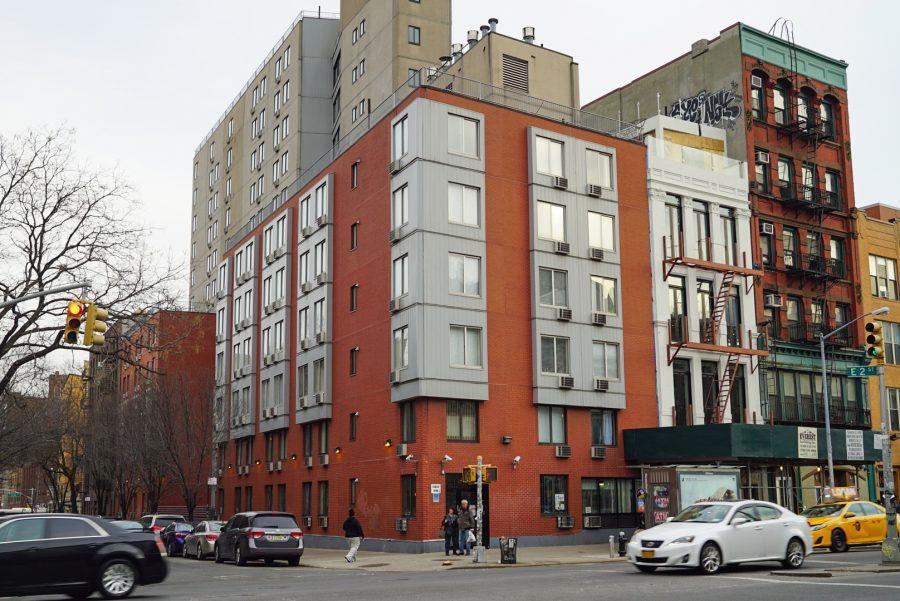The New York City protocol for quarantining in your apartment bedroom is clear: monitor symptoms, stay away from others. But what happens when NYU students living in dorms contract the virus?
COVID-positive residence hall students must pack their essentials with just a few hours of notice upon receiving the positive test and move into a separate isolation dorm for 10 days. They also receive a reimbursed ride to their temporary home.
“My moving experience was quite bad,” Tisch sophomore Andrew Queen, who moved into Second Street Residence Hall around mid-January, said. “I was unaware that once you test positive, you have to relocate dorms. They called me at around 9:30-10:00 PM saying I had to pack everything I needed and move out by that night.”
The hectic nature of the isolation move-in process makes it difficult to ensure that every step adheres to COVID guidelines.
“I was COVID positive and fully contagious taking the elevators in the lobby, touching the doors, and exposing the driver they provided me with,” Queen said.
Stern sophomore Tej Mummadisingu faced a similarly difficult experience moving into Palladium in November.
“NYU’s emergency response vehicle actually took me to the wrong dorm, Founders, at first,” Mummadisingu said. “After directing them to Palladium, I was dropped off and had to get all my luggage out into the hall myself.”
With students moving in and out on such short notice, facility staff need to deal with a myriad of issues, from meal delivery to cleaning to maintenance repair. Students have experienced trouble with heating, air conditioning and getting necessary supplies.
“I was told that there would be water when I got there, which there was not, so I had to call multiple times. It took about 16 hours for me to get a case of water,” Queen said. “In addition to that, I am not sure if the heater wasn’t working or just didn’t work very well, but I had to get an additional space heater. But for the first two nights, I was freezing.”
Since the move-in process happens at a moment’s notice, grocery shopping and supply preparation isn’t an option. NYU covers all meals through GrubHub.
“Plenty of food was available, though the actual NYU-provided meals were fairly uninspired and bland” Mummadisingu said. “However, they gave me $300 worth of GrubHub credit that helped me order dinner and was very appreciated.”
Binx testing is not necessary during isolation but students can contact the Student Health Center’s virtual care system if symptoms appear. In the event of an emergency, students are told to call 911 or Public Safety.
Mental health resources are also vital for isolated students. NYU has a 24-hour wellness hotline that makes licensed counselors available to students. Yet, the Wellness Center leaves a great deal to be desired, according to Queen.
“My mental health was okay during isolation. Not great, but okay,” Queen said. “I experienced a very hard time with my anxiety and readjusting back into society. I reached out to the Wellness Center for counseling, but with appointments only being available once every three weeks, I did not find it helpful.”
The isolation itself also had some glaring flaws, according to Mummadisingu.
“NYU could improve the experience by providing better logistical planning,” Mummadisingu said. “In addition, keeping better track of students as they get tests would be appreciated. I was under no supervision as I left the building once a week during quarantine to get a test.”
After the 10 days are over, NYU’s COVID-19 Prevention & Response Team contacts students to check their health status. If the student is asymptomatic, NYU allows them to move back into their dorm. The entire process, flawed but necessary, makes students feel like a box to be checked.
“NYU makes you feel like protocol, “Queen said. “I did not feel like a person, I felt like an issue they had to take care of.”
Email Sabiq Shahidullah at [email protected].


























































































































































